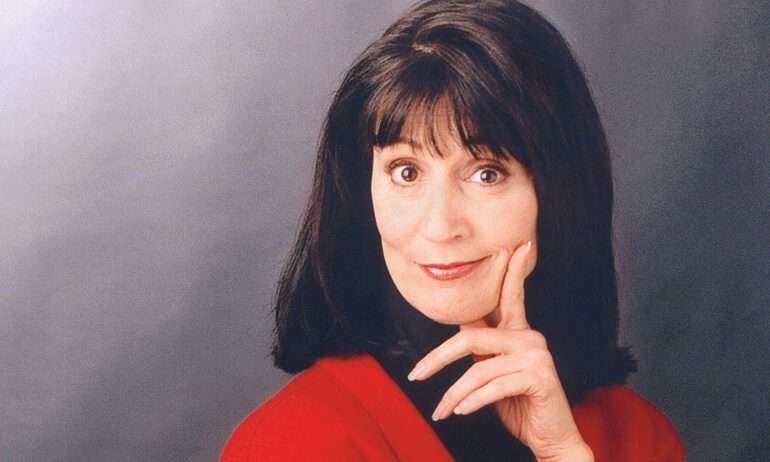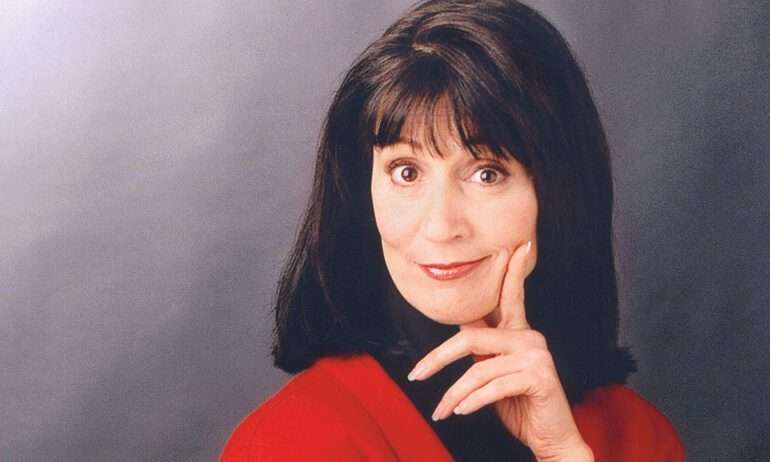Kathy Buckley stands as an anomaly of human
strength; one who has overcome challenges with hearing loss, abuse, illness, and disaster. Buckley, a comedienne, motivational speaker, activist, playwright and performer, captivates an audience's greatest sympathies, embodying a less than alternative American ethos of progressivism,
human rights, and success in spite of inconvenient, yet surmountable, circumstance.
Hearing Loss from a Young Age
At a young age, Kathy Buckley was diagnosed with meningitis. The debilitating disease, which may have lead to her hearing loss, had the possibility of stifling her growth and development during childhood, but it didn't. Buckley seemed to be developing slower than most other children. She had trouble communicating and was considered by teachers and professionals perhaps to be simply "slow," but she wasn't. Eventually diagnosed as having hearing loss, ruling out the possibilities of actual intellectual handicap, Buckley's path to self discovery was underway.
Troubled Childhood
According to her own website, she suffered from abuse as a child and often felt ostracized from her peers in school. The difficulty she had with communication as a child carried over into her teenage years, where she learned to run the school yearbook despite apprehensions about writing and delegating. After graduating from high school in the early 1970's, Buckley began to face devastating external and internal challenges, her hearing loss was only the beginning. Over the next decade of her life Kathy Buckley would survive a car accident and a fight with cervical cancer, only to emerge from the wreckage of these plagues as a successful stand up comedian constantly riffing off of her unfortunate circumstances.
Discovering Comedy
Buckley moved west, still searching for how she best fit into the world around her. She found humor and laughter to act as one of the best agents for healing. She entered the "Stand Up Comics Take A Stand" contest to share her humor with others despite her lack of stand up experience. The contest was set to benefit United Cerebral Palsy, making this not only a successful virgin voyage into the world of entertainment, but also into
activism.
Kathy enjoyed great success in the world of comedy, appearing at Caroline's in New York, perhaps the biggest club for comics to perform in, and the Improv in Los Angeles. However, these may seem less significant compared to appearances on The Late Show, The Today Show, and Good Morning America.
Buckley also works intensely with the government and of her own accord supporting the Americans with Disabilities Act, making her a zealous symbol of hope for the disabled of this country. She makes appearances as a motivation speaker where her serious recounts of being run over and essentially crushed by a jeep still glisten with twinkles of
humor when she retorts "the doctors told me I would never walk again, I figured I couldn't hear them anyway so I got up and left!"
Finding Common Ground Between the Hearing World and Deaf World
Still, Buckley was troubled by feeling like a person "in the middle" - seen as hearing by the deaf because she uses her voice, but deaf by the hearing because of her use of hearing aids. Technology has given a voice to the deaf through such advances in Cochlear Implants and
hearing devices. All of Buckley's students are speaking, despite their hearing loss, and have produced works such as a piece entitled Silent No More, which is meant to "build a bridge between the deaf and the hearing," allowing for those in the middle to act, perhaps, as voices of activism, trust, and support, rather than voiceless enigmas in a rather black and white, hearing and non-hearing, world.
Kathy Buckley aims to motivate us toward finding self acceptance even if we are faced with great obstacles that make the search difficult and, at times, seemingly insurmountable. Being a human being ties the hearing and non-hearing worlds together. They are only separate when one fails to acknowledge their differences without seeking the bridges that unite humanity; suffering, disability, ability, recovery, and transcendence. Each human life ought to find great realizations of fulfillment, passion, and success, no matter what forces attempt to act against us.
By: Michael Strauss




